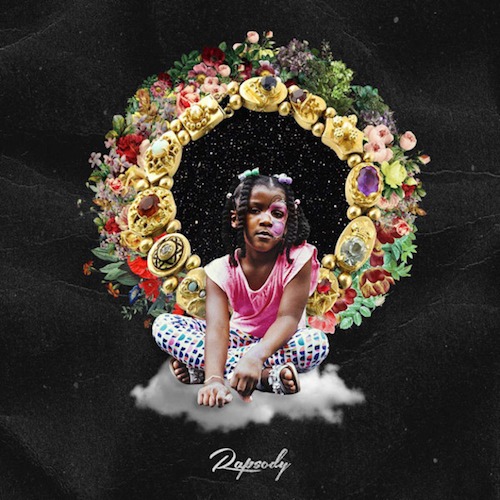Album Review: Rapsody, Laila’s Wisdom
Rapsody
Laila’s Wisdom (released September 23, 2017)
There’s nothing in the world better than the unconditional, outspoken, tell-it-like-it-is, unapologetic love of a grandmother.
Rapsody knows. Laila’s Wisdom, her sophomore LP and first under the Roc Nation banner, is built upon the lessons learned from Grandma Laila. It’s the type of wisdom hip-hop needs to hear in these turbulent times – whether they realize it or not.
While Rapsody’s far from a rap rookie (she’s been on my playlist for a better part of a decade now), she was largely unknown to mainstream listeners until her star-making verse on Kendrick Lamar’s To Pimp A Butterfly. Coincidentally, Laila’s Wisdom feels like a kindred spirit to TPAP. The themes and styles of production are very similar, but they’re one important exception – despite the hard bars and braggadocio that comes with every rap release, Rapsody embraces her femininity and speaks through the perspective of a woman.
It’s hip-hop’s version of Solange’s A Seat at the Table; black womanhood personified.
The gospel-backed title track is a laundry-list of affirmations, not just for Rapsody, but for the listener as well:
Keep that style you got soulful
The best of the best gon fear you
Sky’s the limit see, I told you
You gon be the difference between McDonald’s, Burger King and Whole Foods
Rapsody’s message is clear: When the world devalues you, sometimes you have to be your own cheerleader. “They say we 3/5ths human, well the rest of me’s an Autobot.” That message rings loudly on “Black & Ugly”:
Black and ugly as ever and still nobody fine as me
No one been as kind as me
Only one kind of me
But even more impressively, Rapsody isn’t afraid to take that message one step further, sniping back at the “woke” crowd who dare condemn their own people: “My hair don’t look natural so they question my blackness.” It’s biting commentary that prove all skinfolk ain’t kinfolk.
Rapsody shows wisdom beyond her years on tracks like “Pay Up.” On the surface, it seems like the well-worn cautionary tale against gold diggers. Been there, done that. But once again, she flips the concept – instead of chastising women, she shines the light on male AND female leeches, and how neither will be able to buy each other’s love.
But don’t write off Laila’s Wisdom as a preachy finger-wagging. There’s plenty of time for lighter moments, even when lessons are being levied. “Sassy” has an addictive bounce that wouldn’t be out of place on urban radio – and Rapsody doesn’t sacrifice her bars to do it (“See these pretty wings, I maxed well/I’m Fortunate, I’m the sexist”). Rapsody never loses her stride, no matter when beat switches on “Chrome (Like Ooh)” or when sharing mic time with heavyweights like Black Thought and Kendrick Lamar on “Nobody” and “Power” respectively.
Perhaps the most underrated facet of Rapsody’s game is her ability to write soul-stirring love songs. She does it with a frank vulnerability that hasn’t been seen since Lauryn Hill’s heyday. The album features a trio of tracks that weave together to tell a larger story. “A Rollercoaster Jam Call Love” leads the way and steals the show, a downright elegant entry that shows Rapsody trying to find herself:
Some days I wake up and I feel like
I don’t know what’s wrong and don’t care what’s right
And I ain’t sayin’ that’s it you
Just saying times I think of myself more than I do you
To give you proper love I gotta love myself some
You gotta find yourself something, get you a hobby or something
During gray spaces we existing in
When we ain’t quite a couple but we more than friends
“U Used 2 Love Me” comes off as a bittersweet interlude, bridging the gap to “Knock on My Door,” which ends with a fantastic one-sided monologue that both men and women can relate to. Think Issa Rae’s bathroom mirror rants from HBO’s Insecure and you’ll get what she’s going for.
Laila’s Wisdom’s only drawback (outside of the largely forgettable “OooWee”) is that it can be a dense listen in some spots – it forces you to revisit every song multiple times to pick up on all of Rapsody’s jewels. When the songs are this good, though, that’s not a problem. Perhaps the heaviest listen, though, is the sorrowful 9th Wonder-produced closer, “Jesus Coming.” Hip-hop has had countless songs that grapple with violence and death but, true to form, Rapsody breaks the norm, telling the stories of a mother and daughter traumatized by gunfire and later capping things off with a stirring commentary about the casualties of war:
We was staring at the sun too
We was shooting at each other now we both dying too
I got a family and I know he got a family too
I’m praying to my God and he praying to his too
He fighting for his people and I’m fighting for mine too
Money, oil, land, gold the only plan was to make it back safe with both my feet and hands but
It’s time to go home
Laila’s Wisdom is proof positive that Rapsody is the strongest voice for black women in hip-hop today.
And she learned it from her grandma.
Best tracks: “A Rollercoaster Jam Called Love,” “Chrome (Like Ooh),” “Jesus Coming”
4.5 stars out of 5


Leave a comment